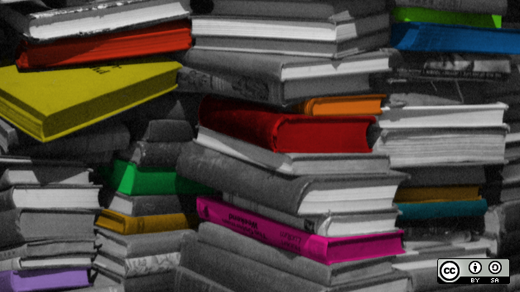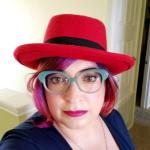Phil Shapiro, one of my fellow Opensource.com Community Moderators, gave a talk at All Things Open 2014 about open source and libraries. This is a recap of that talk.
Too many people ask, "What is the future of libraries?" and not, "What should the future be?" A book that we must read is: Expect More: Demanding Better Libraries For Today's Complex World. If we don't expect more of libraries, we're not going to see libraries change. We have to change the frame of mind that libraries belong the directors—they actually belong to the people and they should be serving the people.
Phil asks how we get some communities to participate in managing libraries. Start looking at your library's collection and see if there is at least 1% of the collection in the STEM arena. Should that percent be more? Maybe 5% or 10% more? There is no set answer here, but maybe we need to make a suggestion to our libraries. Maybe instead of just books our funds should go to empower the community more in the technology arena. Maybe we should have co-working space in our library—this can be fee based even—and could be something as low as $30.00/month. That would be a way for libraries to help the unemployed and the community as a whole.
Libraries are about so much more than books. People head to the library because they're wondering about something—so having people who have practical skills on your staff is invaluable. Instead of pointing people to the books on the topic, having someone for them to talk to is a value-added service. What are our competitors going to be doing while we're waiting for the transition from analog to digital to happen in libraries? We need to set some milestones for all libraries. Right now it's only the wealthy libraries that seem to be moving in this way.
A lot of the suggestions Phil makes are things I've seen some of the bigger libraries in the US doing, like hosting TED Talks, offering digital issues lectures, etc. You could also invite kids in there to talk about what they know and have learned.
Phil says, "The library fulfills its promise when people of different ages, races, and cultures come together to pool their talents in creating new creative content." One thing to think about is whether this change from analog to digital can happen in libraries without changing the name of the library. Instead of libraries, Phil suggests we call them digital commons. I'm not sure this is necessary—I see Phil's point—but I think we need to just rebrand libraries and market them properly and keep their name.
Some awesome libraries include: the Chattanooga Public Library, which has a makerspace on the fourth floor; the Anythink Libraries in Colorado; and the Delaware Department of Libraries is creating a new makerspace, too.
Books are just one of the tools toward helping libraries enhance human dignity, and there are so many other ways we can do this.
Phil showed us a video he made on digity, control panels, and communities:
You can bend the universe by asking questions, so call your library and ask questions about open source or about new technologies so that we plant the seeds of change!
Further reading from Phil: https://sites.google.com/site/librarywritings.
Originally posted on Nicole's blog What I Learned Today as ATO2014: Open sourcing the public library. Reposted under Creative Commons.







Comments are closed.